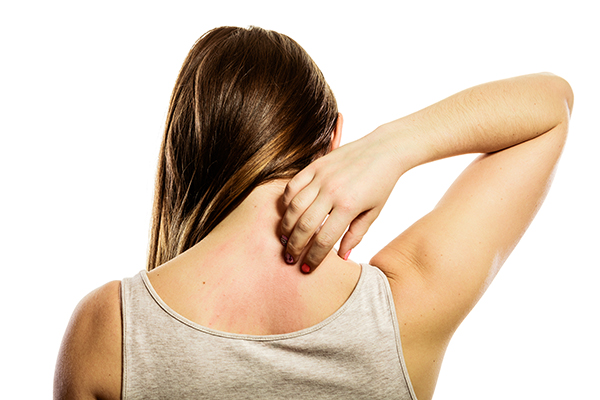Opioid narcotics are a type of drug that includes naturally derived opiates and synthetic opioids. The illicit drug heroin is a naturally derived opiate, as are certain prescription medications like codeine and morphine. Fentanyl is an example of a synthetic opioid, and many medications like oxycodone and hydrocodone are also man-made and considered opioid narcotics. Because the habit-forming nature of opiates is so well known, prescription opiates are generally only prescribed for the treatment of moderate or severe pain, and they are never prescribed for longer than several months at a time. There are many side effects associated with opiate use – even when a medication like codeine or morphine is taken exactly as prescribed, it can result in a series of physical and psychological side effects that must be closely monitored. One of the most well-known side effects is widely known as the “opiate itch.” What about opiates causes the skin to itch, and how can this side effect be effectively alleviated? 
More on the Classic Opiate Itch Symptom
When taken as prescribed, opiate medications like codeine and morphine can be extremely beneficial in helping to alleviate severe pain. In some instances, associated itching is so severe that the medication must be avoided entirely.
Itching is a Side Effect of Opioid Abuse
But what is the cause behind the “opiate itch,” and why do so many individuals experience the same uncomfortable symptom? Up until recently, medical professionals assumed that itching was simply a side effect of certain opiate medications. However, new research points to the fact that one opioid receptor within the brain is responsible for related itching, and this opioid receptor is not involved in pain responses. This means that with some more investigation and more comprehensive research, scientists can decouple itching and pain relief, which means that they can make itch-free opiates a reality shortly. However, this does not mean that opiates will not be addictive. They are some of the most dangerous and life-destroying drugs if used improperly.
Signs of an Opiate Overdose Include Itching
It is important to be able to make a distinction between regular opiate use and an opiate overdose. If you’re with someone who is experiencing the symptoms related to an overdose, it is important to reach out to emergency first responders immediately. If you act right away, the symptoms of the overdose can typically be reversed with Narcan. Some telltale signs of an overdose include:
- The person loses consciousness, and his or her body goes completely limp
- You find it extremely difficult to stir the person awake, they are essentially non-responsive
- The person’s face grows very pale and is cold and clammy to the touch
- The person’s fingernails and lips turn bluish
- The person starts making gurgling noises or begins to vomit
- The person that experiences respiratory depression, meaning that breathing slows almost to stopping
- The heartbeat either slows or stops
If you know someone who has been struggling with opiate addiction, it is a good idea to always have Narcan on hand. for more information on obtaining a Narcan prescription, reach out to Evoke Wellness today.
Evoke Wellness and Opiate Addiction Recovery
At Evoke Wellness our team of dedicated and compassionate professionals has extensive experience working with men and women of all ages who have been suffering from an opiate abuse disorder. Opiate addiction is extremely difficult to overcome without professional help, seeing as symptoms associated with withdrawal and post-acute withdrawal are so severe and disruptive to day-to-day life. If you were prescribed an opiate medication and you eventually developed a physical and psychological dependence, or if you have been abusing an illicit opiate like heroin, there is help available. Simply give us a call and our treatment advisors will begin developing a plan of action, which includes setting up a date and time for your intake and going over all financial options. Don’t let covering the cost of treatment or physically getting to treatment prevent you from receiving the quality clinical care you deserve. We are available to help you in any and every way possible.


